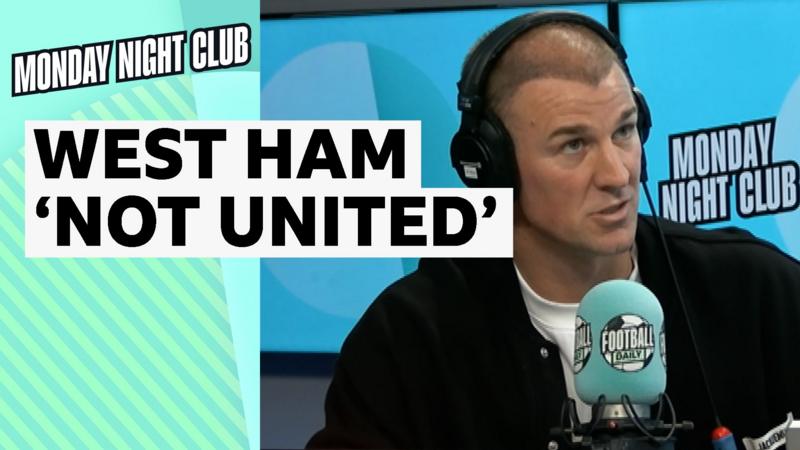Hart Exposes Lingering Unrest at West Ham: Inside Scoop



The atmosphere surrounding West Ham United is charged with tension as discussions surface on the Monday Night Club with Mark Chapman leading the debate alongside Joe Hart and Hammers United guest, Gary Killington. The trio delved deep into the undercurrent of unrest bubbling between the club's board and its passionate fanbase following a series of recent protests.
West Ham, a club with a rich history dating back to 1895, has seen its share of ups and downs, embodying the heart and spirit of East London. From glorious nights at Upton Park to challenging days at the London Stadium, the relationship between the fans and the club's management has often been symbiotic, though not without friction.
The fans, celebrated for their loyalty and dubbed as the 'Irons', have recently expressed a growing discontent with the club's direction under its current leadership. This unrest culminated in protests that have drawn significant attention to the issues at stake, namely, governance and financial handling by the board which some supporters feel doesn't align with the club's ethos and ambitions.
During the discussion on the Monday Night Club, Gary Killington, representing the Hammers United—a group advocating for fans' interests—outlined the core issues fueling the protests. According to Killington, transparency, better communication, and a say in the club's strategic decisions are at the top of the list for many supporters. This sentiment was amplified by recent decisions perceived by fans as prioritizing commercial gains over club heritage and competitive success.
Former England goalkeeper Joe Hart, offering his perspective, spoke about the essential role of harmony between a club's administration and its supporters. Hart, who has experienced the pressures of performing both for big clubs and on the international stage, empathized with the supporters’ concerns, emphasizing that fans are the heartbeat of any club. He argued that their involvement in club decisions could foster a more unitary path forward.
Mark Chapman, steering the conversation, highlighted the broader implications of such fan unrest not just for West Ham but for football clubs across England. He pointed out that while fan protests are not new in the sport, the digital age has amplified their voice and impact, making it an era where fans can no longer be sidelined.
What stands out in this ongoing saga is the potential pivotal moment it represents not only for West Ham United but also for the sport at large. Clubs are increasingly under scrutiny for their commercial strategies, and how they balance this with the traditional football values could set precedents for others across the league.
Furthermore, the discussion briefly touched on the historical context of football clubs evolving from community-based organizations into global enterprises. This evolution, as noted by the panel, brings with it a complex web of expectations and responsibilities, which can often lead to clashes between the old guard fans and new age management.
As the situation unfolds, the role of dialogue between the club officials and the fans appears more crucial than ever. Solutions that could potentially bridge the gap include establishing regular forums for discussion, fan representation on the board, and more transparent financial reporting.
The Monday Night Club's insightful session underscored the essence of mutual respect and understanding in navigating the choppy waters of modern football management. For West Ham, a club steeped in tradition yet striving to maintain its relevance in the fast-paced modern game, the path forward is fraught with challenges but also brimming with opportunities for reinvention and reconnection with its core supporters.
The unfolding narrative at West Ham is a testament to the power and passion of football's grassroots—the fans. How this situation resolves could very well resonate beyond the terraces of the London Stadium, influencing football clubs globally in recognizing and respecting the voice of the fanbase.